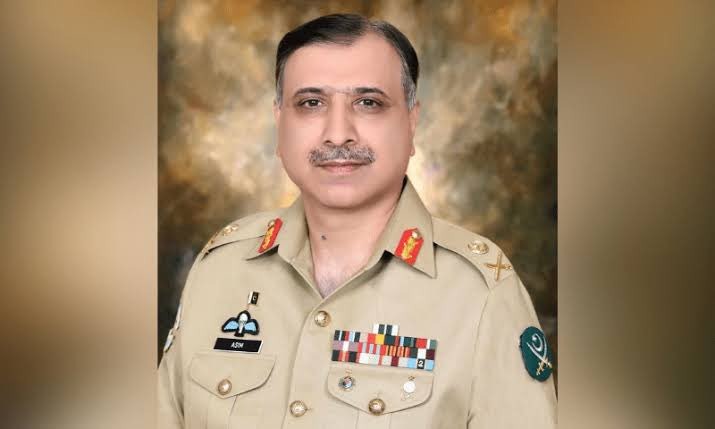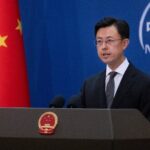Islamabad – In a significant and unprecedented move, Pakistan has appointed its current spy chief, Lt. Gen. Muhammad Asim Malik, as the country’s new National Security Adviser (NSA) – while he continues to lead the Inter-Services Intelligence (ISI). The decision, which comes amid growing tensions with neighboring India following a deadly terror attack in Kashmir, has raised eyebrows both within South Asia and among global diplomatic circles.
The move marks the first time a serving ISI chief has been entrusted with dual responsibilities at the very top of Pakistan’s national security structure.
A First in Pakistan’s Security History
The announcement was made through an official notification issued by Pakistan’s Cabinet Division on April 29, 2025. It stated that Lt. Gen. Malik, who currently heads the country’s most powerful intelligence agency, will now also oversee strategic national security decisions as NSA with “immediate effect.”
This dual-role appointment is unprecedented in Pakistan’s history. While the NSA post has previously been held by military officers or civilian experts, never before has a sitting ISI chief concurrently occupied the NSA office. Malik becomes Pakistan’s 10th NSA since the post was created, and perhaps its most powerful one yet.
Who Is Lt. Gen. Muhammad Asim Malik?
Lt. Gen. Malik is a seasoned military leader and a rising star in Pakistan’s armed forces. Known for his operational acumen and intelligence background, Malik has held key positions including Adjutant General at Army Headquarters and command of infantry formations in volatile regions such as Balochistan and South Waziristan.
He was appointed Director General of the ISI in late 2024 and has since taken a hardline stance on both internal and external threats. His swift elevation to NSA adds to speculation that Pakistan is streamlining its security leadership amid regional pressure.
Kashmir Attack: The Immediate Trigger?
The timing of Malik’s dual appointment coincides with heightened tensions following a gruesome attack in Pahalgam, Jammu and Kashmir, on April 22. Twenty-six civilians, including women and children, were killed by unidentified gunmen in what has been described as one of the deadliest terror strikes in recent years.
While New Delhi has pointed fingers at Pakistan-based militant groups, Islamabad has denied any involvement and called for an international investigation. The blame game has reignited longstanding mistrust between the two nuclear-armed neighbors.
In the wake of the attack, both countries have expelled diplomats, suspended visas, halted bilateral trade, and shut down border crossings. India has even suspended the 1960 Indus Waters Treaty — a symbolic but serious escalation.
Military on High Alert
In Islamabad, the government has warned of “serious consequences” if India attempts any cross-border retaliation. Defence Minister Khawaja Asif went so far as to suggest that Pakistan’s nuclear doctrine remains unchanged — but added that any existential threat would be met with “appropriate deterrence.”
Reports suggest Pakistan’s armed forces are on high alert, with troops mobilized near the Line of Control and air defenses monitoring Indian movements. India, on the other hand, has increased diplomatic outreach to global powers, including the United Nations Security Council’s non-permanent members, seeking international pressure on Pakistan.
Why the Dual Role Matters
National security analysts say Malik’s dual role reflects Pakistan’s desire for tighter civil-military coordination. With the ISI long considered the most powerful institution in the country, bringing its chief into a formal policymaking role consolidates power and may reduce internal friction between intelligence gathering and policy execution.
“This is about sending a message — both domestically and to India — that Pakistan’s civil and military leadership are fully aligned,” said a former Pakistani diplomat.
Additionally, the NSA role had remained vacant since 2022, leading to a vacuum in national security strategy. Malik’s appointment may signal Islamabad’s intent to shift toward a more intelligence-driven national security apparatus.
Global Reactions: A Call for Restraint
The dual appointment and the surrounding India-Pakistan tensions have drawn global attention. The United States, China, Saudi Arabia, and Qatar have all urged both sides to de-escalate. U.S. Secretary of State Marco Rubio reportedly held phone calls with both Indian and Pakistani counterparts, stressing the need for restraint and cooperation in investigating the Kashmir incident.
China, a long-time ally of Pakistan, issued a statement encouraging both countries to “avoid provocations and maintain regional peace.”
Domestic Reactions: Mixed Signals
In Pakistan, the response has largely been supportive among pro-government media and analysts. Many have welcomed the move as “timely” and “strategic.” However, some civil society voices have raised concerns about further militarization of Pakistan’s foreign and internal policies.
Critics argue that with the military already holding dominant influence over security, diplomacy, and domestic affairs, such a concentration of power could marginalize civilian institutions even further.
What Lies Ahead?
The road ahead remains uncertain. Pakistan’s economy is struggling, India is in election mode, and the specter of further conflict looms large. Lt. Gen. Asim Malik now finds himself at the intersection of intelligence, military readiness, and diplomacy.
Whether his dual appointment will enhance coordination or raise new concerns remains to be seen. What is clear, however, is that Islamabad is preparing for all possible scenarios — and wants the world to know that it means business.
Final Thoughts
Asim Malik’s appointment as both ISI chief and NSA is more than just a bureaucratic reshuffle. It’s a bold signal from Pakistan’s top brass that the country is shifting gears on national security, choosing to act decisively in the face of external threats. But as tensions escalate with India, only time will tell whether this move brings stability or stokes further geopolitical fires.





